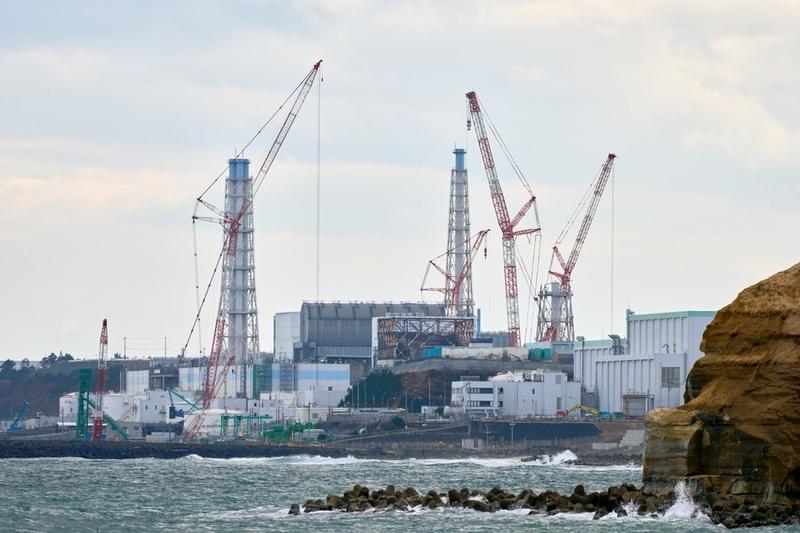 This photo taken on March 6, 2023 shows the Fukushima Daiichi nuclear power plant in Futabacho, Futabagun of Fukushima prefecture, Japan. (PHOTO / XINHUA)
This photo taken on March 6, 2023 shows the Fukushima Daiichi nuclear power plant in Futabacho, Futabagun of Fukushima prefecture, Japan. (PHOTO / XINHUA)
The 22nd Melanesian Spearhead Group (MSG) Leaders Summit, held in the Vanuatu capital Port Vila from Aug 23-24, with China and Australia being invited to attend by Prime Minister Alatoi Ishmael Kalsakau, saw climate change and ocean environment as key for development.
Although no final agreement was reached on the inclusion of the United Liberation Movement of West Papua, leaders agreed to two significant measures in a bid to make the subregional groups more relevant.
They endorsed an agreement on climate change and, in a pointed reference to Japan, called upon countries not to discharge nuclear wastewater into the Pacific Ocean.
READ MORE: Will we ever see real climate action?
On Aug 24, Japan began releasing wastewater from the Fukushima Daiichi nuclear power plant that was heavily damaged by an earthquake and tsunami in 2011, supposedly mounting to some 1.4 million tonnes of nuclear contaminated water to the Pacific over next decades.
Speaking to delegates at dinner on Aug 24, Vanuatu Prime Minister Kalsakau said he was not happy with the decision to release the wastewater into the Pacific.
“Unless the water treated is incontrovertibly proven, by independent scientists, to be safe then Japan should seriously consider other options,” he said.
The other measure leaders endorsed was for the advancement of mutual respect, cooperation, and amity between Melanesian countries.
READ MORE: Canadian minister to attend climate meeting in Beijing
The MSG was established 35 years ago to represent and advance the interests of Melanesia and its people. The theme for this year's meet was “MSG, Being Relevant and Influential”. It was 15 years since Vanuatu last hosted the Leaders' Summit.
Both China and Australia play a significant role in the region and expressed their intentions to strengthen engagement and enhance cooperation. Both countries are leading sources of bilateral loans in the Pacific.
China has carried out over 100 assistance projects, provided more than 200 batches of supplies, sent over 600 medical personnel, and mentored more than 10,000 professionals across the Pacific
China's Ambassador to Vanuatu Li Minggang said Beijing wants to cooperate with the MSG in economic matters, investment, tourism, climate change, health, and policing, among other areas.
Li said China provides genuine support to Pacific countries to achieve independent and sustainable development, according to Radio New Zealand.
He said China has carried out over 100 assistance projects, provided more than 200 batches of supplies, sent over 600 medical personnel, and mentored more than 10,000 professionals across the Pacific.
Li said the world's second-largest economy will continue to help Pacific Island countries based on equal treatment and win-win cooperation.
READ MORE: ASEAN countries to advance cooperation on climate change
Professor Lei Yu of the Centre for Pacific Islands Countries Studies at Liaocheng University said the summit primarily focused on climate change, environmental protection, regional economic development, and regional solidarity.
Lei said the group specifically aims to be peaceful and neutral despite power competition in the region.
“(Pacific) Island countries are unwilling to be employed by the former colonial powers as ‘pawns’ against the emerging powers, which might undermine regional peace, stability and economic growth,” Lei said.
“The top priority of the (Pacific) Island countries remains to meet the challenges of global climate change, which needs the joint efforts made by all countries across the world.”
READ MORE: Indonesia launches sky train to ease traffic and pollution
Lei said the island countries value mutually beneficial cooperation with emerging countries, including China, which is in the interest of the island countries in improving local economic growth, employment, and livelihoods.
Melanesia is a subregion of Oceania in the southwestern Pacific Ocean. It extends from New Guinea in the west to the Fiji Islands in the east and includes the Arafura Sea. The region includes the four independent countries of Fiji, Vanuatu, Solomon Islands, and Papua New Guinea.
The issue of the United Liberation Movement of West Papua's (ULMWP) membership was also discussed at the summit in Port Vila, Vanuatu.
The ULMWP seeks that West Papua, the western half of Papua New Guinea, become an independent nation. It has been under Indonesian military occupation since 1962.
READ MORE: Fiji's rights body condemns Japan's wastewater dumping
It was decided that any final decision on the ULMWP inclusion in the MSG would be left to the Pacific Islands Forum (PIF), which embraces all nations of the Pacific.
Papua New Guinea Prime Minister James Marape said after the meeting that the West Papua matter should be handled by the PIF.
He said it was agreed that leaders from the Pacific will visit Jakarta and raise issues about sovereignty and human rights.
Indonesia, an associate member of MSG, has said they do not accept ULMWP's application to become a full member because it goes against the MSG's founding principles and charter.
During the summit, Indonesian delegates walked out when ULMWP representatives arrived.
Contact the writers at karlwilson@chinadailyapac.com


